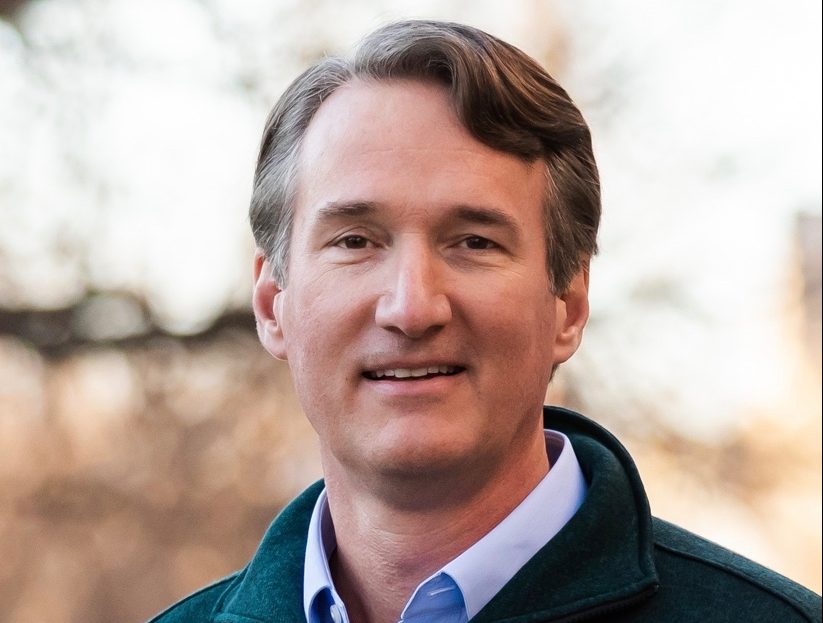During a heated one-day veto session last week, the Virginia General Assembly killed Governor Glenn Youngkin’s amendments that would have created two new misdemeanor crimes for possessing more than two ounces of marijuana, accompanied by potential fines and jail time. The controversial legislation also would have banned the sale of Delta-8—a popular form of THC that gives users a less potent high than regular weed—starting in October.
The Democratic-controlled Senate initially rejected Youngkin’s amendments, which would have allowed the governor to sign or veto the original bill prohibiting marijuana products in the shape of a human, animal, vehicle, or fruit. However, after a lengthy debate, the senators decided to send the bill to the Rehabilitation and Social Services Committee, taking the new crimes off the table—at least until next year.
Since Virginia legalized marijuana last year, the laws surrounding the drug have continued to stir up debate among legislators. While adults 21 and over can legally possess up to one ounce of marijuana and grow up to four plants at home, it will not be legal to sell it until 2024. Individuals found guilty of possessing more than an ounce—but less than a pound—are subject to a $25 civil fine. (Possessing more than a pound remains a felony.)
Multiple racial justice groups rallied against the governor’s amendments, which they said would have had a disproportionate impact on Black people. According to the American Civil Liberties Union, Black people are nearly four times more likely than white people to be arrested for marijuana possession, even though both use the drug at about the same rate.
“This re-criminalization of possession is really just a re-targeting of law enforcement back on Black and brown people in Virginia,” says Chelsea Higgs Wise, executive director of Marijuana Justice. “You’re separating families, you’re putting people in a cage, and you’re now putting up barriers to housing and education.”
Last month, the CannaJustice Coalition—including Marijuana Justice, Rise for Youth, Justice Forward Virginia, and the Virginia Student Power Network—delivered a petition signed by more than 1,300 supporters to the General Assembly, urging it to not create any new marijuana crimes, among other demands. Instead, the coalition says legislators should focus on resentencing the hundreds of people incarcerated for using a now-legal substance.
“We are also disappointed that legislators and even some advocates are publicly discussing which new crimes would be more acceptable than other new possession crimes, when the demand should be no new crimes,” adds Higgs Wise. “If we can’t agree on that, then we definitely can’t agree on who should be making the millions and billions of profit.”
The proposed penalties would have taken the state’s criminal justice reform efforts a step backwards. Last year, Virginia automatically sealed all records of misdemeanor possession with intent to distribute marijuana, including arrests, charges, and convictions. And in 2020, all records of misdemeanor simple possession were sealed.
The death of Youngkin’s amendments comes after the Republican-controlled House killed a bill earlier this year that would have allowed licensed medical dispensaries and 10 industrial hemp processors to begin selling recreational weed in September, but prohibited other retailers from selling the drug until 2024. Some advocacy groups protested against the proposed law, claiming it would give corporations an unfair advantage and increase enforcement in marginalized communities. Legislators are expected to discuss early sales again next year.
However, marijuana advocates like Virginia NORML continue to urge legislators to crack down on unregulated marijuana products, and establish a legal market as soon as possible. Over the past year, products like Delta-8 have increasingly popped up in convenience stores, smoke shops, and other businesses across the state, causing some users to experience adverse effects.
“Unregulated products containing synthetically-derived THC will continue to be sold at retail and wholesale outside of the strict regulatory oversight currently required for legally produced cannabis products,” said JM Pedini, executive director of Virginia NORML, in a press release. “Consumers deserve to know what they’re purchasing, and far too often what’s on the label is not what’s in the package.”
Still, Pedini points to a new law improving the state’s medical cannabis program as a victory for NORML this year. Starting in July, patients who have received written certification from a medical provider will no longer have to go through the lengthy process of registering with the Board of Pharmacy—they will be allowed to shop at a medical dispensary right away. There are currently around 8,000 patients waiting to access the program.
Higgs Wise remains worried about what the next legislative session will bring, and anticipates another tough fight to keep new marijuana crimes off the books.
“I am hoping that by then there will be one or at least a few champions that step up for legalization and will carry a bill that has our true demands in it,” she says. “We do not have to rush to legalize [sales] next session…It’s not just about the criminality but also the commercialization that is going to lead towards exploitation [and] leaving out small entrepreneurs.”
“We’re ready to hold the line strong,” she adds.
